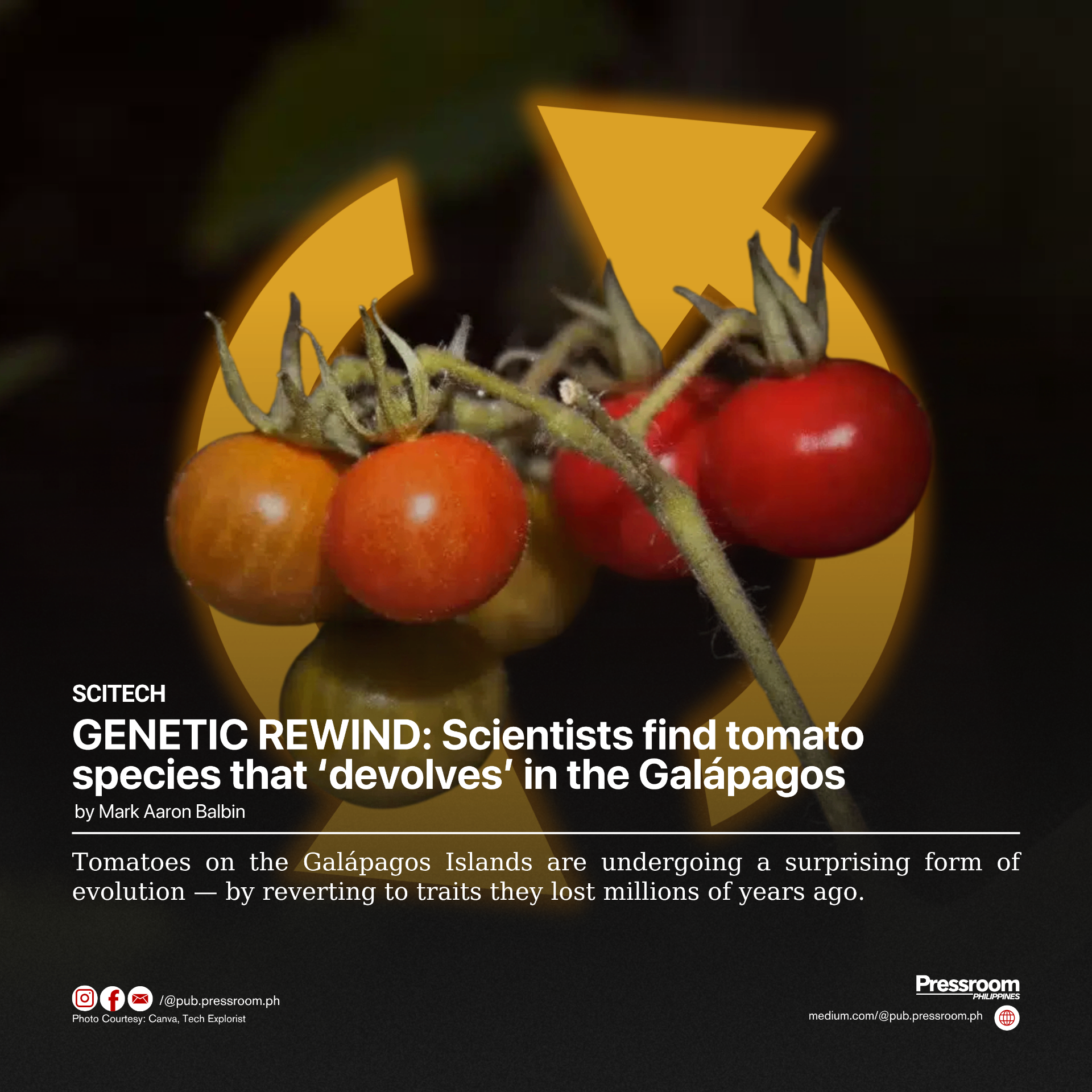via Mark Aaron Balbin, Pressroom PH
Tomatoes on the Galápagos Islands are undergoing a surprising form of evolution — by reverting to traits they lost millions of years ago.
Researchers from the University of California, Riverside, led by molecular biochemist Adam Wozniak, have discovered that wild tomato species, particularly Solanum cheesmaniae, are producing bitter, toxic compounds once believed to be long gone from modern tomatoes.
This shift appears to be caused by just a few changes in the plant’s genetic code, specifically in an enzyme responsible for alkaloid production. These alkaloids, while toxic to humans in large amounts, help the plant defend itself against insects and harsh environmental conditions.
By comparing Galápagos tomatoes with both ancestral and modern relatives, the team found that these plants had re-evolved ancient enzyme activity, making their chemistry resemble tomatoes from 50 million years ago.
This kind of “reverse evolution” is rare and surprised scientists, demonstrating how quickly nature can re-activate old traits with minimal genetic changes.
Extreme conditions like volcanic soils, high salt levels, and increased herbivore pressure may have driven the tomatoes to reawaken these ancient chemical defenses. It shows that plants can return to ancestral features if it benefits their survival in changing habitats.
Scientists believe the extreme environment of the Galápagos — especially its younger, volcanic western islands — may be pushing the tomatoes to revive these ancient traits.
“That knowledge could help us engineer new medicines, design better pest resistance, or even make less toxic produce. But first, we have to understand how nature does it. This study is one step toward that,” Wozniak said.


.png)



